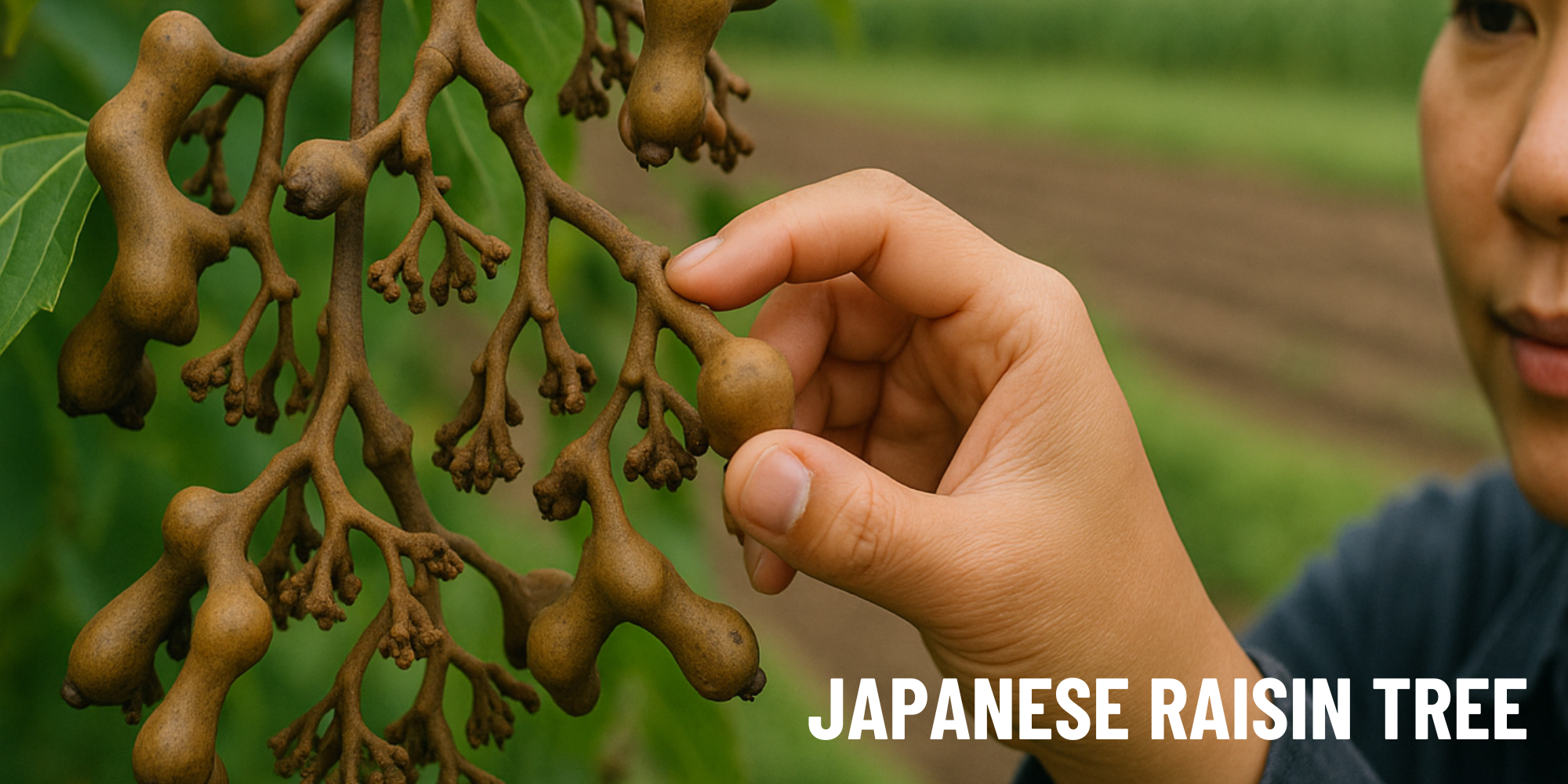
If you're looking into the Japanese Raisin Tree, you've come to the right place. As a supplement manufacturer that uses Japanese Raisin Tree, we have years of experience and research. In this complete guide, we'll share with you everything you need to know about Japanese Raisin Tree.
The Japanese Raisin Tree, scientifically known as Hovenia dulcis, is tree native to eastern Asia — particularly Japan, China, and South Korea.
It is commonly referred to as the "Japanese Raisin Tree" or "Oriental Raisin Tree" due to its fruit that has a raisin-like appearance. This tree has a rich history and plays a significant role with oriental herbalists and traditional medicine dating back hundreds of years.
One of the most popular modern usages of Japanese Raisin Tree is in supplements for its many functional benefits. It's made in a variety of different ways for consumption:
These different formats of Japanese Raisin Tree allow you to take this miraculous fruit for its vast range of benefits to the body.
Japanese Raisin Tree offers several benefits that promote overall well-being while helping travel, altitude, and drinking.
Let's explore these seven Japanese Raisin Tree benefits in detail:
In summary, these are the six most popular Japanese Raisin Tree benefits and usages — including liver support, alcohol consumption, lowering fatigue, enhancing performance, altitude aid, and increasing antioxidants.
The fruit of the Japanese Raisin Tree is not only beneficial for health but also adds a unique flavor to culinary creations and functional foods. The fruit has a sweet taste that's similar to sugar with a touch of cinnamon, and textured like a dry raisin.
In China, South Korea, and Japan — the dried fruits and leaves contain natural sweeteners used in tea, wine, and candy. As a functional food it's used in beverages, noodles, and other food products, and as a supplement it's used in pills, tablets, and powders.
If you're using Japanese Raisin for functional and supplemental reasons, you'll want to find a pure blend that includes all the flavonoids and biologically active compounds.
From Dihydromyricetin (DHM) to Quercetin, Japanese Raisin naturally contains a synergistic mix of highly potent components that aid the body.
At Zaca, we use a proprietary blend that not only includes the Japanese Raisin fruit (hovenia dulcis extract), but also the seeds and peduncles. These have all been shown in studies to be effective and beneficial.
Naturally Occurring Ingredients In Japanese Raisin Tree Extract:
These are the ingredients that make up Japanese raisin tree extract that we use in our chewable tablets.
No, Japanese Raisin (Oriental Raisin) does not naturally contain any caffeine.
Unless the tea or food has added other ingredients such as green tea, it should have no stimulant effects. Zaca's chewables contains a high amount of Japanese Raisin without any caffeine.
With so many different names for this highly prized herb, Japanese Raisin Tree is known by many in eastern Asia and traditional medicine.
Names include Hovenia Dulcis, Oriental Raisin, Chinese Raisin, Korean Raisin, and Jiguja.
You may have a tough time finding the Japanese raisin tree outside of specialty grocery stores. However, you can consume it fresh, as it keeps in a dark cupboard for up to two months, or dehydrate it and enjoy it as a raisin alternative.⁷
You can also find Japanese raisin tree extracts, which sometimes appear in supplements like Zaca. Specialty health food stores with an herbal extract section are your best places to seek them outside of online shops.
While Japanese Raisin Tree extract is known to not have any side effects, there is concern over using the isolated flavonoid from the plant called DHM.
Where this causes concern is it's isolated from the natural plant that contains supporting components, and usually extracted from Vine Tea. We do not use this isolated form called DHM in Zaca.
To read more, you can see our write-up about DHM side effects.

As a premium and proprietary Japanese Raisin tree supplement, Zaca chewables helps you bounce back faster. Formulated with a potent extract of japanese raisin, it includes the seeds, peduncles, and fruit for the most synergistic and powerful results. With supporting antioxidants and amino acids, these chewables aid you to rehydrate, replenish, and recover. In easy-to-use portable packets, conveniently take 2-4 chewables anytime you need it. Try Zaca's hovenia dulcis extract-infused chewable supplement today and discover the cherished benefits of Japanese Raisin tree!
SOURCES:
1. Hovenia Dulcis (Japanese Raisin Tree or Oriental Raisin Tree)
https://en.wikipedia.org/wiki/Hovenia_dulcis
2. Hepatoprotective Effects Of Hovenia Dulcis Seeds Against Alcoholic Liver Injury
https://www.ncbi.nlm.nih.gov/pmc/articles/PMC7327782/
3. Effects Of Hovenia Dulcis Peduncles On Chronically Alcohol-Induced Liver Damage
https://pubmed.ncbi.nlm.nih.gov/22648047/
4. Treatment Of Chronic Liver Injuries - Extract Of The Fruit Of Hovenia Dulcis
https://www.worldscientific.com/doi/abs/10.1142/S0192415X07005181?journalCode=ajcm
5. Anti-Fatigue Activity Of Hovenia Dulcis
https://pubmed.ncbi.nlm.nih.gov/23895162/
6. Dihydromyricetin Improves Physical Performance Under Simulated High Altitude
https://journals.lww.com/acsm-msse/fulltext/2014/11000/Dihydromyricetin_Improves_Physical_Performance.6.aspx
7. Hepatoprotective Effects Of Hovenia Dulcis Seeds Against Alcoholic Liver Injury
https://www.ncbi.nlm.nih.gov/pmc/articles/PMC7327782/
8. Japanese Raisin Hovenia Dulcis – An Asian Traditional Herb
https://www.thieme-connect.com/products/ejournals/pdf/10.1055/s-0030-1249776.pdf
9. Hovenia Dulcis (Raisin Tree) Fruit Tea
https://herbni.com/eng/hovenia-dulcis-raisin-tree-fruit-tea-80g.html
10. Plant-derived sweetening agents: saccharide and polyol constituents of some sweet-tasting plants
https://pubmed.ncbi.nlm.nih.gov/2314108/
11. Japanese Raisin Tree
https://examine.com/supplements/japanese-raisin-tree/
Copy the coupon code & use it at checkout